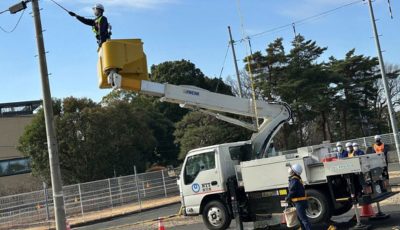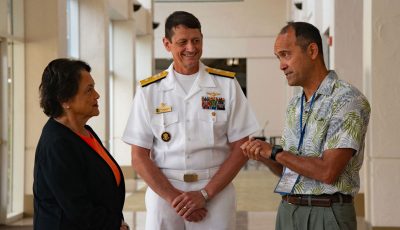Navigating the human experience
I stood in line at the CK Post Office with a colleague who recalled that he resided on island for almost 30 years, more than half of his lifetime. Though he is of Philippine descent—not classified a native indigene by blood—nonetheless he refers to himself as “of Mariana Islands’ descent.”
The Northern Marianas Humanities Council—composed of a board and staff—reflects the colleagues’ view of “Mariana Islands’ descent” and though the Carolinian and Chamorro indigene perspectives take center stage, their disappearing cultural heritage protected, other ethnic groups on island are encouraged to partake of the “navigating the human experience” motif, important in the Council’s programs.
I hang out with a Carolinian elder and visitors who sail periodically from Satawal. The image of the navigator is fresh in their memories, relived through handed down oral memory of sails to Japan but particularly the move to Saipan from the Carolines in the 1800s after some devastating natural events, experienced on the occasional trip from Saipan to Satawal and return.
The Chamorro and Carolinian divide has not always been a smooth one. Accounts of the Chamorro looking down on the Carolinian abound, and the Carolinian shrugs off the snub in turn. The settlement pattern of Saipan and Guam was the Chamorro on the hills and arable land with the grain, the hogs and the chicken, while Carolinians attended to the shellfish in the shore and the canoe fishing in the deep.
The Chamorro integrated faster into mainstream España, Alemania, Niponggo, and Mericano, with kin conscripted into the armed forces. The Carolinian male took the ocean as his playground, navigating it as his vocation while the female fructified the soil, kept the fire on the hearth and the arm warm in the home. The clannish unity of the Carolines was heavy on the motherly flavor!
I grew up in coastal provinces of Philippines’ northern Luzon. I trained natural resource managers and community development workers on the uplands and the nearshores in the Visayas (Samar and Leyte, Cebu-Bohol-Siquijor, Negros and Panay), and the Northern coast of Mindanao from Butuan to Dapitan.
I lived in the Marshall Islands and Guam in the ’80s, hopped through Micronesia from Kosrae to Palau, over Pohnpei, Chuuk and Yap while residing in the CNMI, so the “navigating” sense came strong with the territory.
I learned to stretch the body in China, saw swiftness of bones and muscles in kung fu, and equilibrated the internal qi in tai-chi. Navigating geography is quite a wild journey; the excursion into the human experience, wilder. Carolinians traversed geography; it is time to be more specific with the internal journey other than just old metaphors of spirit.
The Humanities Council printed the account of Lino M. Olopai, The Rope of Tradition, written with ex-PCV and cultural anthropologist Juliana Flinn. We do not promote either the NMHC, or Olopai’s book, but each strongly affirms the human activity of navigating one’s own journey, recalling experiences and verbalizing them in words and expressing them in olfactory, culinary, visual, audio and tactile symbols that are shared with others. To be human is to map the wholeness of the existential journey.
We offer the relating of ours so others may reflect and articulate theirs, too. I follow the current parameters of the human consciousness as those of (a) time, (b) space, (c) role, and (d) story.
My time is 86 years long, arbitrarily based on my family genetics and habits. Phased into five sections of 17 years each, plus one year to top the 85th year of the terminal phase to remind me of the mas o menos quality of the choice, we state a number to manage its direction, knowing the journey to be infinitely full of surprises but with a terminal point chosen on 12.15.31, again an arbitrary but concrete chosen date, so I can freely proceed with its expenditure unencumbered by the dread of death.
The “earthrise” image from Apollo 8 assaulted my space. Spatial status and integrity moved beyond the limit of family and clan, identity with a nationality, loyalty to an ethnic group, and honor in social standing of a profession. My home is planet Earth; I am an earthling from Pole to Pole, a “nobody” in society, stranger to no culture or clime!
Roles I play are given and chosen. My gender is a quality of birth, my genes and memes, a given. But most of my social roles—writer and newscaster, teacher and preacher, citizen and friend, lover and never mind, et al, are products of choice, for which I attribute to no one blame, and/or any claim to fame.
But t’is the story that is most critical, left as a choice at many points between WOW (world of wonder) at one end of the spectrum to WHOA (with hate overly anxious) at the other. Mine is fully that at the extreme end of WOW!
I’ve written a page for every year of memory, and hope to stop six years hence at 75. Now, the question is not my details; it is of yours. How do you narrate your journey?



























